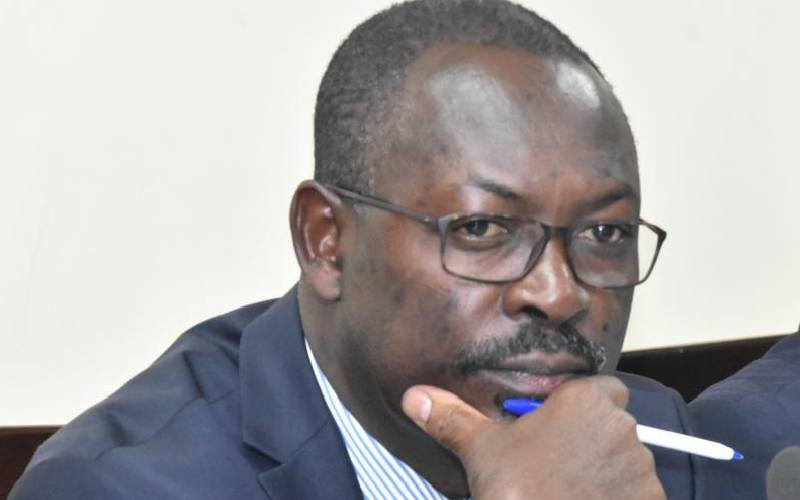By TWV Investigations Desk
The retirement of Nahashon Muguna as Managing Director of the Nairobi City Water and Sewerage Company (NCWSC) has pulled back the curtain on years of mismanagement, political shielding, and environmental violations that have left the capital grappling with an acute water crisis.
For over six years at the helm, Muguna presided over a utility firm that consistently fell short of its mandate. Nairobi currently supplies just 525.6 million litres of water per day against a demand of 900 million litres, leaving nearly half the city in chronic shortage. The infrastructure meant to serve a population of 2.6 million in the 1980s is now straining under the weight of 5.3 million residents.
Muguna’s tenure was mired in controversy. Regulators such as the National Environment Management Authority (NEMA) persistently flagged NCWSC as one of the major polluters of the Nairobi River through untreated sewage discharge. Yet despite repeated calls for accountability, Muguna appeared insulated from consequences, with sections of the Nairobi County Assembly accused of shielding him from scrutiny.
In May 2024, when the NCWSC board controversially renewed Muguna’s contract, despite him nearing the retirement age of 60, discontent erupted. Civil society groups, including Sheria Mtaani, swiftly moved to the Employment and Labour Relations Court (ELRC) to challenge the extension. Judge Hellen Wasilwa later ruled that while due procedure had been followed, the board erred in granting a contract extending beyond his retirement age.
The court battles and environmental scandals highlight a larger issue: systemic inefficiencies embedded deep within NCWSC. For years, Nairobi residents have endured erratic supply, pipeline leakages, and soaring water cartels exploiting the shortages. Critics argue that political interference has allowed entrenched networks of corruption and inefficiency to thrive within the company.
“Muguna’s reign was defined less by service delivery and more by survival. He had protection in high places, and that insulated him from accountability,” remarked a Nairobi County Assembly insider who requested anonymity.
With Muguna’s exit, the board has appointed Martin Nangole as acting managing director. His immediate challenge is colossal: to upgrade an ageing water supply system last meaningfully expanded in 1987, tackle non-revenue water losses estimated at over 40 per cent, and restore public trust.
Residents expect not only a change of face but also a change of culture. “Nairobians are tired of recycled promises. We need a functional, transparent water company that puts citizens above politics,” said Shadrack Wambui, a petitioner in the contract renewal case.
As climate pressures intensify and Nairobi’s population continues to balloon, the demand for clean water will only escalate. Experts warn that unless NCWSC undergoes radical reform, expanding treatment capacity, enforcing compliance, and sealing revenue leaks, the city’s water crisis could spiral into a humanitarian emergency.
For millions of Nairobians, the issue is not merely about leadership change. It is about survival. Whether Nangole, or whoever eventually takes permanent charge, can rise to the occasion remains to be seen.




